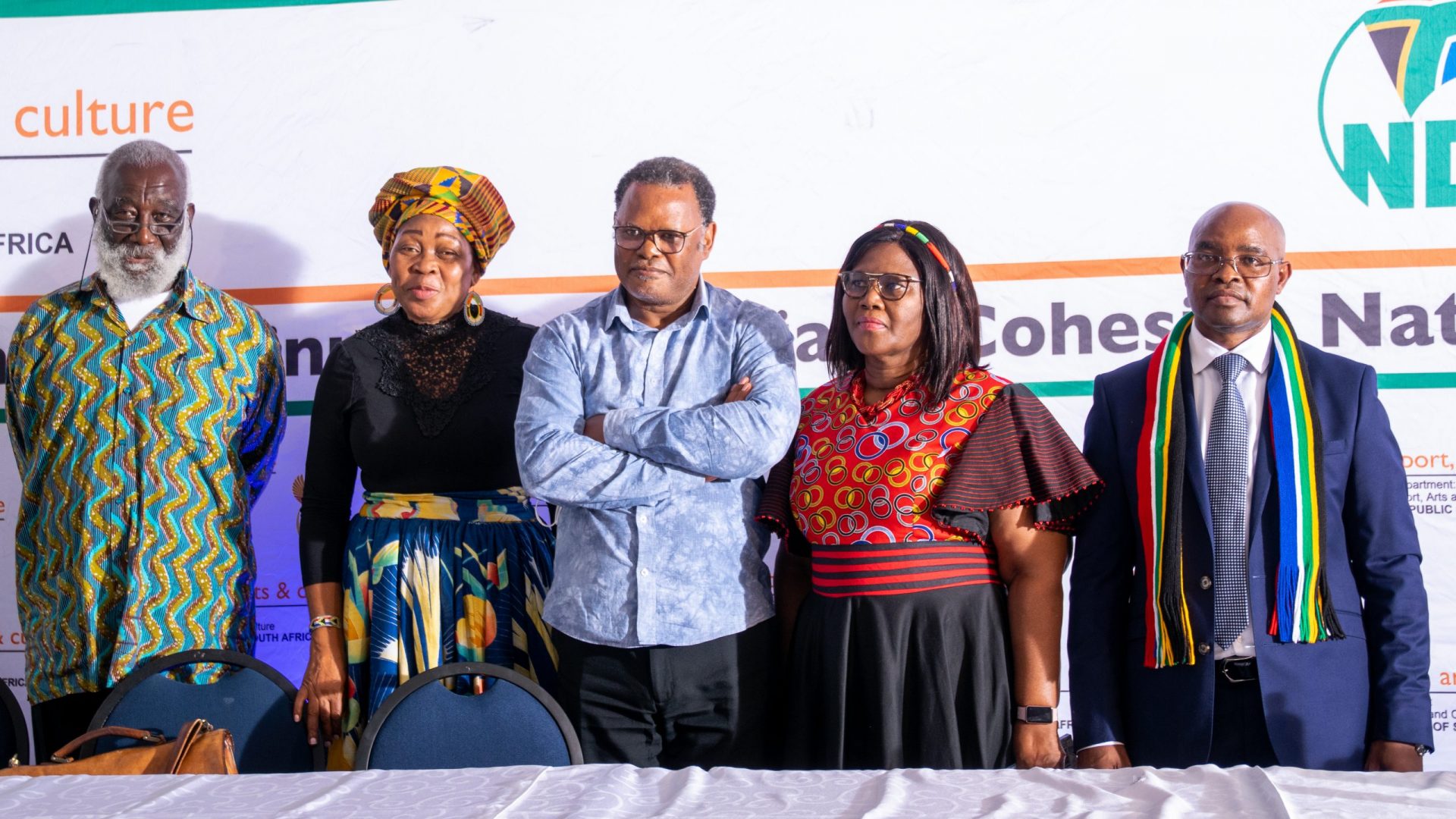UNIZULU Celebrates Africa Day with Riveting Performance and Lecture

Africa Day aims to celebrate and recognise the triumphs of the Organisation of African Unity (OAU now the AU) from its conception on May 25, 1963, in the fight against colonialism and apartheid, as well as the development that Africa has made while reflecting upon the mutual encounters that the continent faces in an international environment.
The University of Zululand (UNIZULU) in conjunction with the national Department of Sports, Arts and Culture hosted an Africa Month lecture under the topic “African Languages, Social and Economic Transformation”.
The event was graced by the presence of Director-General of the Department of Sports, Arts and Culture, Mr Vusumusi Mkhize, and UNIZULU Vice-Chancellor Professor Xoliswa Mtose.
Prof Mtose opened her address by breaking down the Africa Day concept. She said: “Africa Day is a day that we remember our history and identity as Africans, taking stock of where we are coming from and where we are headed as people of Africa in terms of progress we have made socially, politically and economically. It is a day where we remember our common goal, as a people, of our shared history that makes us a people with common destiny as a result of our shared experiences, especially that of colonial domination by external forces.”
The lecture was presented by Prof Kwesi Kwaa Prah, the Founder of the Centre for the Advanced Study of African Society (Casas), a brain trust that is devoted to research of critical developments in Africa and its diaspora. Prof Prah spoke on the culture and the history of African language. “Language lies at the heart of culture. Language is intangible; it is not something which is manufactured like a car which you can see, you can touch, you could feel or anything like that which transacts the whole of culture. Language lines is the central pillar on which the whole advocacy of culture rests. In 1913, the first rules of spelling for a standardised version was done. The same year, with determination, they took it to schools. Five years later they were introducing it to universities. Between 1925 and 1927 they had it in parliament. I want to emphasise again that the key for us is culture, particularly the language.
Let us all get hold of our languages and use languages to lift up our own identity. If we use our languages, the common man in the village is empowered. We empower everybody in that way. The moment we start and those villages even speak their language more beautifully because of the greater control that those of us who are ‘so called’ educated (have). If we want to lift our society by the book straps, then take the language to the people; take knowledge to the people in the languages that they know. That way we will transform people and they can have their pride back and the collective memory will come back,” he said.
Speaking on behalf of the Department of Sports, Arts and Culture, Mkhize thanked UNIZULU for organising the Africa Day lecture considering the impact it will have on the preservation of culture and languages in the African continent.
“What is it that is in the power of language? And why were the colonisers so afraid of the culture and language of indigenous people? I think the answer lies in what Ngugi wa Thiago said when he said that while he was in prison, he was surprised by why he was imprisoned for working (using) an African language but when he was working (using) the English language, he was not imprisoned. He then realised in that time while in prison the power between the language and the use of power itself and the meaning of power. So we really appreciate Prof Prah in what you have said in your statements when you touched the raw nerve about geography and people and when you talked about the Unity of Africans and the use of language and culture,” Mkhize said.
In his closing remarks, Prof Sipho Seepe, Deputy Vice-Chancellor: Institutional Support, thanked the department for partnering with the University in celebrating Africa month and hosting the lecture as well. He also thanked the Vice-Chancellor and Prof Prah for the impactful lecture.
Caption
From left: Professor Kwesi Kwaa Prah, Founder of the Centre for the Advanced Study of African Society; Gcina Mhlophe, storyteller and playwright; Professor Sipho Seepe, Deputy Vice-Chancellor: Institutional Support; Prof Xoliswa Mtose, UNIZULU Vice-Chancellor; and Vusumusi Mkhize, Director-General of the Department of Sports, Arts and Culture.
- Siyanda Mntambo














Leave a Reply